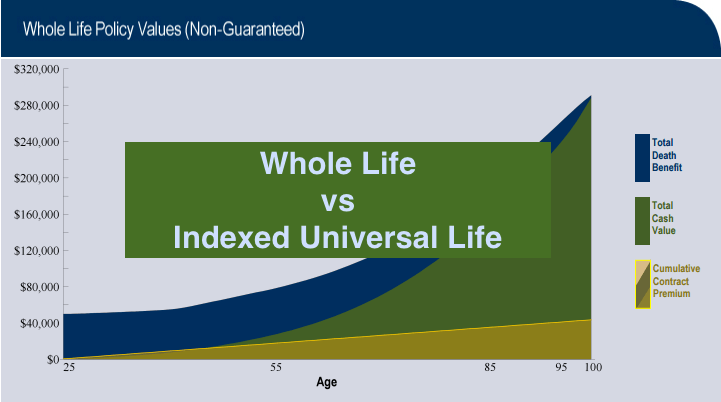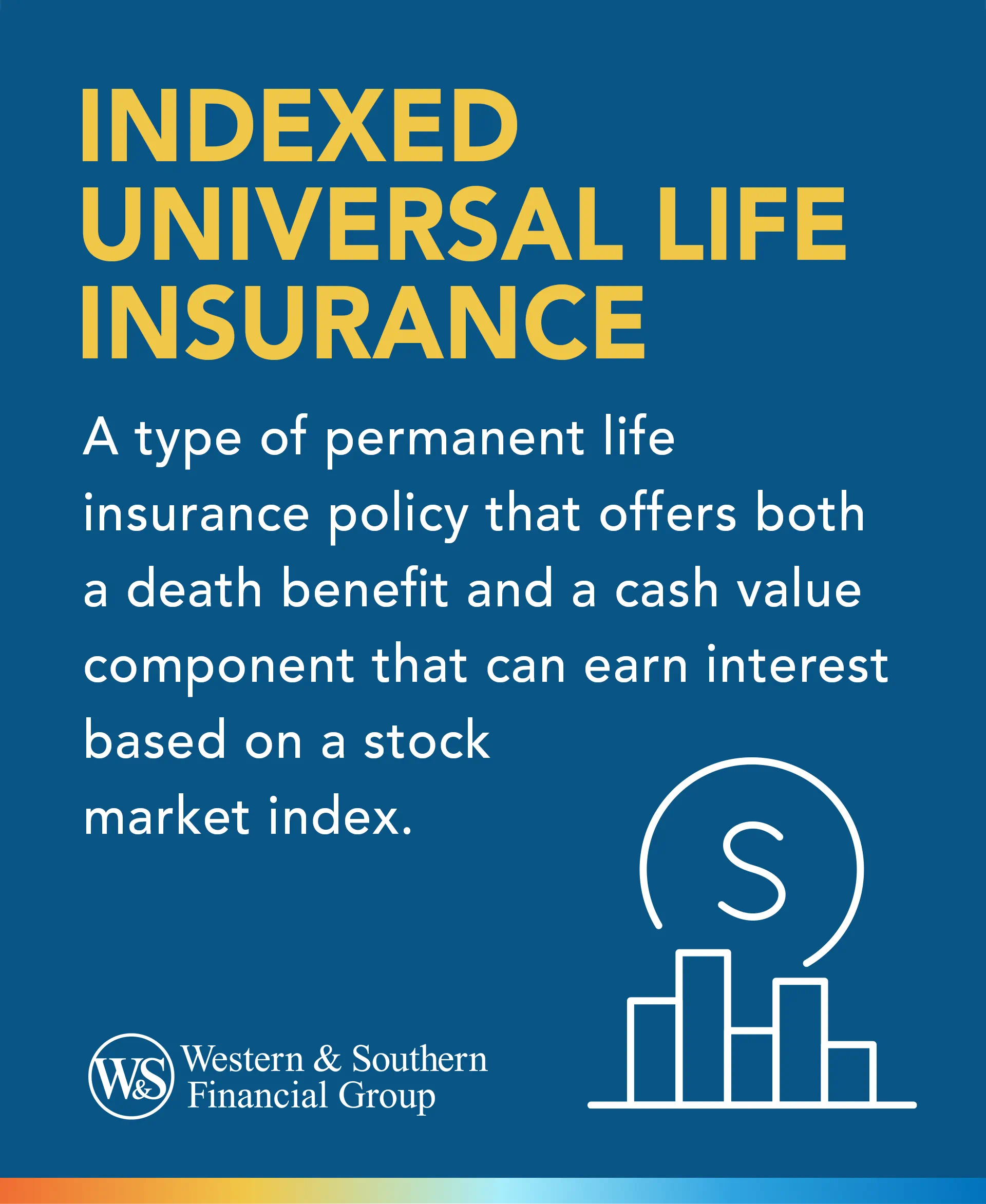All Categories
Featured
Table of Contents
Do they contrast the IUL to something like the Vanguard Total Supply Market Fund Admiral Shares with no load, a cost proportion (ER) of 5 basis factors, a turn over ratio of 4.3%, and an outstanding tax-efficient document of distributions? No, they contrast it to some dreadful actively handled fund with an 8% load, a 2% EMERGENCY ROOM, an 80% turn over proportion, and an awful document of short-term funding gain distributions.
Common funds typically make yearly taxable distributions to fund proprietors, even when the worth of their fund has decreased in value. Shared funds not only need revenue coverage (and the resulting annual tax) when the common fund is rising in value, but can additionally impose income taxes in a year when the fund has decreased in worth.
You can tax-manage the fund, harvesting losses and gains in order to reduce taxed circulations to the investors, however that isn't in some way going to change the reported return of the fund. The possession of shared funds may need the shared fund owner to pay approximated tax obligations (what is universal life insurance with living benefits).

IULs are very easy to place to make sure that, at the owner's death, the recipient is exempt to either earnings or estate taxes. The same tax decrease methods do not function nearly also with shared funds. There are countless, typically expensive, tax catches connected with the moment trading of shared fund shares, traps that do not relate to indexed life Insurance coverage.
Chances aren't very high that you're going to be subject to the AMT because of your common fund distributions if you aren't without them. The rest of this one is half-truths at ideal. For circumstances, while it is true that there is no income tax obligation due to your heirs when they inherit the profits of your IUL policy, it is additionally real that there is no income tax obligation due to your beneficiaries when they acquire a common fund in a taxed account from you.
Best Universal Life
The government estate tax exception limit is over $10 Million for a couple, and growing every year with inflation. It's a non-issue for the huge majority of physicians, a lot less the remainder of America. There are much better ways to prevent inheritance tax issues than buying investments with reduced returns. Common funds may create income taxation of Social Security benefits.

The growth within the IUL is tax-deferred and might be taken as free of tax earnings by means of financings. The plan owner (vs. the mutual fund manager) is in control of his/her reportable income, thus enabling them to lower or perhaps remove the taxes of their Social Security advantages. This one is excellent.
Right here's one more minimal issue. It's true if you acquire a common fund for claim $10 per share right before the distribution day, and it distributes a $0.50 circulation, you are then mosting likely to owe taxes (probably 7-10 cents per share) although that you have not yet had any kind of gains.
In the end, it's actually concerning the after-tax return, not just how much you pay in tax obligations. You're also probably going to have more cash after paying those tax obligations. The record-keeping needs for owning shared funds are dramatically much more complex.
With an IUL, one's documents are maintained by the insurance policy company, copies of yearly statements are sent by mail to the proprietor, and distributions (if any type of) are totaled and reported at year end. This is also kind of silly. Obviously you need to maintain your tax obligation documents in case of an audit.
Eiul Policy
Hardly a factor to get life insurance coverage. Shared funds are typically part of a decedent's probated estate.
Additionally, they undergo the delays and costs of probate. The earnings of the IUL policy, on the other hand, is always a non-probate distribution that passes beyond probate straight to one's named beneficiaries, and is therefore not subject to one's posthumous lenders, undesirable public disclosure, or similar hold-ups and costs.
Medicaid disqualification and life time revenue. An IUL can give their proprietors with a stream of revenue for their whole life time, no matter of exactly how long they live.

This is useful when arranging one's events, and transforming possessions to earnings before a retirement home arrest. Shared funds can not be converted in a similar fashion, and are nearly always taken into consideration countable Medicaid properties. This is another silly one supporting that inadequate people (you recognize, the ones that need Medicaid, a federal government program for the inadequate, to pay for their nursing home) ought to make use of IUL rather than mutual funds.
No Lapse Guarantee Universal Life Insurance
And life insurance policy looks awful when contrasted relatively against a retirement account. Second, individuals that have cash to get IUL over and past their pension are mosting likely to have to be horrible at taking care of cash in order to ever qualify for Medicaid to pay for their retirement home costs.
Chronic and incurable health problem cyclist. All policies will certainly permit a proprietor's easy accessibility to cash money from their policy, usually waiving any kind of abandonment penalties when such individuals experience a severe illness, require at-home care, or come to be constrained to an assisted living home. Shared funds do not offer a similar waiver when contingent deferred sales fees still put on a mutual fund account whose owner needs to sell some shares to money the costs of such a remain.
Universal Life Insurance Florida
Yet you reach pay more for that advantage (motorcyclist) with an insurance coverage. What a good deal! Indexed global life insurance policy offers survivor benefit to the recipients of the IUL owners, and neither the owner neither the beneficiary can ever before lose cash as a result of a down market. Mutual funds provide no such guarantees or death advantages of any type of kind.
I absolutely do not require one after I reach financial independence. Do I want one? On average, a purchaser of life insurance policy pays for the real expense of the life insurance policy benefit, plus the costs of the plan, plus the revenues of the insurance coverage company.
Iul Tax Free
I'm not completely certain why Mr. Morais included the whole "you can't shed cash" once again right here as it was covered fairly well in # 1. He simply intended to repeat the most effective selling point for these points I expect. Once again, you do not shed small dollars, but you can lose real bucks, as well as face major chance price as a result of low returns.

An indexed universal life insurance coverage policy owner may exchange their policy for a totally different policy without activating income taxes. A shared fund owner can not move funds from one shared fund company to another without marketing his shares at the previous (hence activating a taxed occasion), and buying new shares at the latter, typically based on sales fees at both.
While it is real that you can trade one insurance coverage for one more, the reason that people do this is that the very first one is such an awful policy that even after purchasing a brand-new one and undergoing the early, unfavorable return years, you'll still come out in advance. If they were sold the appropriate policy the first time, they shouldn't have any need to ever trade it and undergo the very early, adverse return years once more.
Latest Posts
Can I Cash Out My Universal Life Insurance Policy
Universal Life Insurance With Living Benefits
Nationwide Universal Life